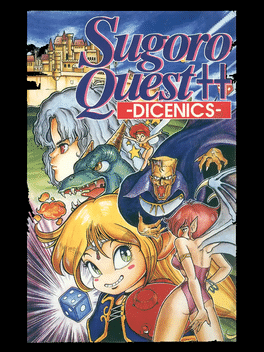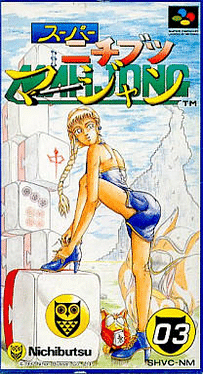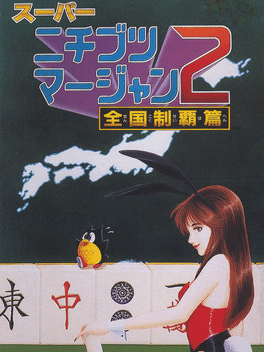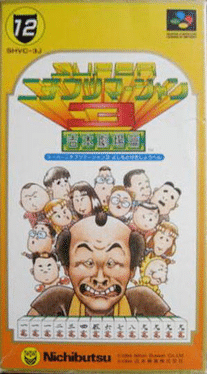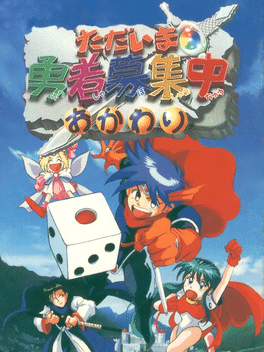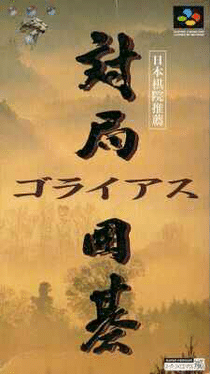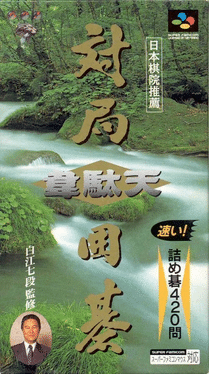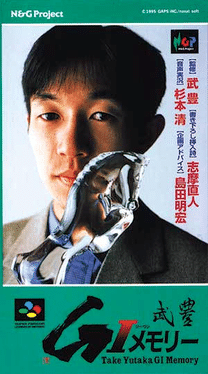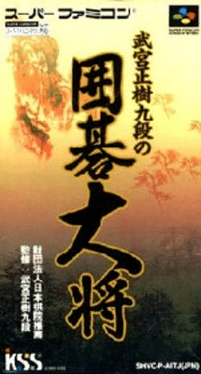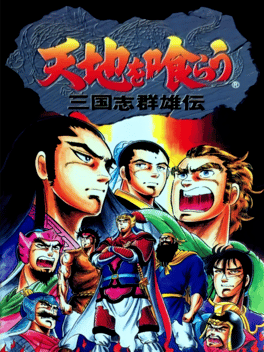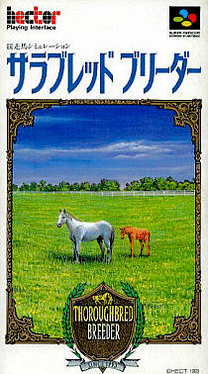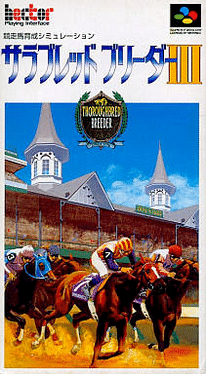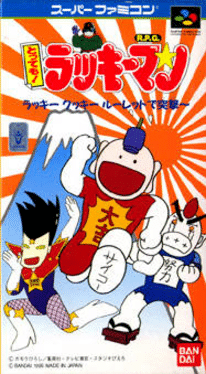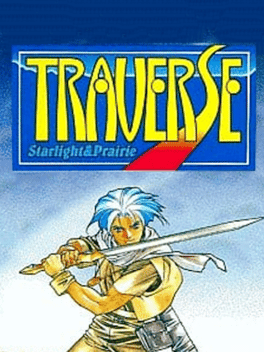Most Popular Super Famicom Games - Page 40
-
Super Mahjong 3
1994
Super Mahjong 3
1994
Super Mahjong 3 is a Miscellaneous game, published by I'Max, which was released in Japan in 1994. -
Turf Memories
1995
Turf Memories
1995
Turf Memories is a Sports game, published by Bec, which was released in Japan in 1995. -
Sugoro Quest++ Dicenics
1994
SugoroQuest++ Dicenics is a Miscellaneous game, published by Technos, which was released in Japan in 1994. -
Super Nichibutsu Mahjong
1992
Super Nichibutsu Mahjong is a Miscellaneous game, published by Nichibutsu, which was released in Japan in 1992. -
Super Nichibutsu Mahjong 2: Zenkoku Seiha-hen
1993
Super Nichibutsu Mahjong 2: Zenkoku Seiha-hen is a Miscellaneous game, developed and published by Nichibutsu, which was released in Japan in 1993. -
Super Nichibutsu Mahjong 3: Yoshimoto Gekijou-hen
1994
Super Nichibutsu Mahjong 3: Yoshimoto Gekijou-hen is a Miscellaneous game, published by Nichibutsu, which was released in Japan in 1994. -
Tadaima Yuusha Boshuuchuu Okawari
1994
Tadaima Yuusha Boshuuchuu Okawari is a Miscellaneous game, developed and published by Human Entertainment, which was released in Japan in 1994. -
Taikyoku Igo: Goliath
1993
Taikyoku Igo: Goliath is a Miscellaneous game, published by Bullet Proof Software, which was released in Japan in 1993. -
Taikyoku Igo: Idaten
1995
Taikyoku Igo: Idaten
1995
Taikyoku Igo: Idaten is a Miscellaneous game, published by Bullet Proof Software, which was released in Japan in 1995. -
Take Yutaka G1 Memory
1995
Take Yutaka G1 Memory is a Sports game, developed by Gaps and published by Naxat Soft, which was released in Japan in 1995. -
Takemiya Masaki Kudan no Igo Taishou
1995
Takemiya Masaki Kudan no Igo Taishou is a Miscellaneous game, published by KSS, which was released in Japan in 1995. -
Tamagotchi Town
1999
Tamagotchi Town
1999
Tamagotchi Town is a strategy game. The goal of the game is to create a large Tamagotchi society on a given piece of land containing different landscapes. The game features a unique way of raising Tamagotchis through interactivity with their environment. All the Tamagotchi characters that appear in-game are from the classic 1996-1998 Tamagotchi Toys, as well as several new characters unique to the game. -
Tenchi wo Kurau: Sangokushi Gunyuuden
1995
Tenchi wo Kurau: Sangokushi Gunyuuden is a Strategy game, published by Capcom, which was released in Japan in 1995. -
Thoroughbred Breeder
1993
Thoroughbred Breeder
1993
Thoroughbred Breeder is a Sports game, developed and published by Hect, which was released in Japan in 1993. -
Thoroughbred Breeder III
1996
Thoroughbred Breeder III is a Sports game, developed and published by Hect, which was released in Japan in 1996. -
Tokoro's Mahjong
1994
Tokoro's Mahjong
1994
Tokoro's Mahjong is a Miscellaneous game, developed by Syscom and published by Vic Tokai, which was released in Japan in 1994. -
Top Management II
1994
Top Management II
1994
Top Management II is a Strategy game, published by Koei, which was released in Japan in 1994. Players must keep their corporation profitable by any means possible as a corporate executive. This entire video game is in Japanese; making it mandatory to be able to read the language. Frequent corporate meetings keep players aware of what is happening within the company. It is a sequel to Top Management for the Family Computer and NEC PC-9801. A typical game of Top Management begins in the year 1980. Starting in the first week of April, players must participate in strategic corporate meetings in order to guide the focus of the company into certain Japanese prefectures. Buying and selling is done on the Tokyo Stock Exchange in order to improve profits for the entire corporation. Employees can be hired, fired, or laid-off during these important meetings. -
Toride
1994
Toride
1994
Toride ("Fortress", sometimes referred to as Pai Toride or "Mahjong Tile Fortress") is a mahjong solitaire game released exclusively in Japan first in the Arcade and subsequently on the Super Famicom in 1994. The Arcade version is sometimes referred to as "Last Fortress". The player must clear all the tiles on the screen, as per usual mahjong solitaire rules, but in order to do so they have to store matching tiles along the bottom of the screen. The player's "hand" has a limited number of slots available, and if the player fills it up with pieces that don't match then they have failed. There is also a timer for the whole round that ticks down whenever the player is deliberating on their next move, and removing pairs of pieces from play will slightly refill it. There are also special power-up tiles that increase the timer. As with mahjong solitaire, the player can only match identical tiles. The exception are the eight unique season and flower tiles, which can be paired off with any other season or flower (though -
Tottemo! Luckyman: Lucky Cookie Roulette de Totsugeki
1995
Tottemo! Luckyman: Lucky Cookie Roulette de Totsugeki is a Role-Playing game, developed by Tom Create and published by Bandai, which was released in Japan in 1995. -
Traverse: Starlight & Prairie
1996
Traverse: Starlight & Prairie is a Role-Playing game, developed by Pandora Box and published by Banpresto, which was released in Japan in 1996.


